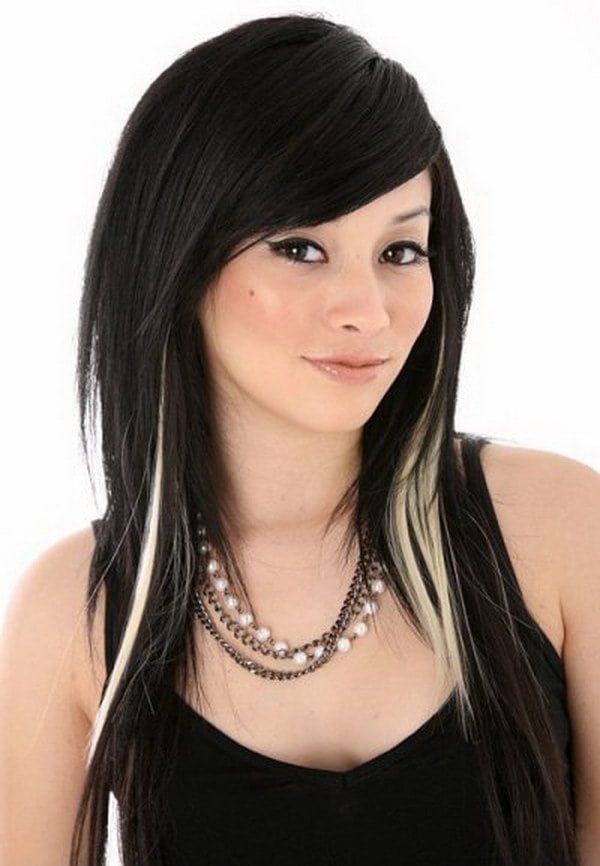Table Of Content

After a six-week limited run at the Public Theater in 1967, Hair opened on Broadway at the Biltmore Theatre April 29, 1968. The musical, directed by Tom O’Horgan with dance direction by Julie Arenal, played 17 previews and 1,750 performances before closing July 2, 1972, earning Tony Award nominations for Best Direction and Best Musical. After a black-out, the tribe enters worshiping in an attempt to summon Claude ("Oh Great God of Power").
Film
He observes the hippies panhandle from a trio of horseback riders, including Short Hills, New Jersey debutante Sheila Franklin ("Sodomy"), and later catches and mounts a runaway horse, which the hippies have rented, exhibiting his riding skills to Sheila ("Donna"), before then returning the horse to Berger, who offers to show him around. The divisions then often included estrangements of teenagers from their parents. So some young people wound up forming alternative clans in which you chose your own family. And for much of the show, it’s that reciprocally supportive camaraderie that makes the musical feel so alive.
Look Back at the Original Broadway Production of Hair
When the Wig Is a Character: Backstage at Jocelyn Bioh's New Play - The New York Times
When the Wig Is a Character: Backstage at Jocelyn Bioh's New Play.
Posted: Fri, 15 Sep 2023 07:00:00 GMT [source]
I always forget, though, that over two acts that could easily be a single, tighter one, the “Hair” writing team (Galt MacDermot, Gerome Ragni and James Rado) packs in a host of disposable pastiche numbers that don’t earn their time onstage. Hair starred Rado as Claude, Ragni as Berger, Ronald Dyson as Ron, Steve Curry as Woof, Lamont Washington as Hud, Lynn Kellogg as Sheila, Sally Eaton as Jeanie, Melba Moore as Dionne, and Shelley Plimpton as Crissy. Following the original Broadway production, a movie version of Hair was released in 1979. The musical returned to its roots with the Public Theatre with a Central Park concert in 2008 that lead to a Broadway revival in 2009, directed by Diane Paulus.
About Hair on Broadway
Three tribe members dress up as principals in Hitler mustaches and swastika arm bands, mocking the American education system. He pretends to burn his Vietnam War draft card, which Berger reveals as a library card. Following his "trip", Claude falls out with Berger and the tribe members, ostensibly due to a practical joke on Sheila (taking her clothes while she's skinny-dipping, which forces her to hail a taxi in just her panties), but also due to their philosophical differences over the war in Vietnam — and over personal versus communal responsibility. After wandering the city ("Where Do I Go?"), Claude finally reports to the draft board (“Black Boys/White Boys”), completes his enlistment, and is shipped off to Nevada for basic training. Claude Hooper Bukowski of Oklahoma is sent off to New York City after being drafted into the Army ("Aquarius"). Before his draft board-appointment, Claude explores New York, where he encounters a close-knit "tribe" of hippies led by George Berger.
Sheila
New Play by Jocelyn Bioh '08 to Open 2023-24 Broadway Season School of the Arts - Columbia University School of the Arts
New Play by Jocelyn Bioh '08 to Open 2023-24 Broadway Season School of the Arts.
Posted: Wed, 28 Jun 2023 07:00:00 GMT [source]
Once unlocked, you’ll be free to return to Gwen’s Hair Salon, where you’ll encounter Kasim, who will ask for help to track down some salon equipment that can be found in the Wasteland. We highly recommend picking up the “First Customer” Side Quest before adventuring into the Wasteland, as the next main mission, Altess Levoire, also takes place in the same area, allowing you to complete this side quest at the same time. The May 17 ceremony will be open to the public, with tickets and tables available to the lunchtime event at DramaLeague.org. “Mother Play” also recalls another theater classic that never gets revived these days, and for good reason.
Burkhardt’s stage credits also include Jesus Christ Superstar and Kiss Me, Kate. With a score including enduring musical numbers like "Let the Sun Shine In," "Aquarius," "Hair" and "Good Morning Starshine," Hair depicts the birth of a cultural movement in the '60s as told through a tribe of hopeful hippies living in New York City while war rages in Vietnam. Notably, Here We Are, the final Sondheim musical that posthumously premiered last year Off-Broadway at The Shed, was not considered for this year's awards at the request of the production. Broadway's Appropriate and Mary Jane were both ruled revivals since they are being presented on Broadway with "substantially different production elements" compared to the works' Off-Broadway premieres, whereas The Prayer for the French Republic and Suffs were ruled transfers, making them eligible in the Outstanding Production categories. Sheila is carried onstage ("I Believe in Love") and leads the tribe in a protest chant. Jeanie, an eccentric young woman, appears wearing a gas mask, satirizing pollution ("Air").
At the 37th Golden Globe Awards, Hair was nominated for a Best Motion Picture – Musical or Comedy, and Williams was nominated for New Star of the Year in a Motion Picture – Male. The film was also nominated for Best Foreign Film at the 1980 César Awards, losing to Woody Allen's Manhattan (which was also released by United Artists). Months later, Claude, Sheila, and the tribe gather at Berger's grave in Arlington National Cemetery, whose grave marker shows that he was killed in Vietnam ("Let the Sunshine In"). So thoroughly of its time are the show’s once-radical specifics — it’s all in on free love, psychedelic drugs, and men figuring out that OMG, they can like each other — that it really has no business working anymore. Yet in an America whose kids seem uncertain about their place and almost frantically eager to find better ways of being in the world, Matthew Gardiner’s exuberant and openhearted production sure does — and it bit me right in the soft spot where I usually store up my bile. After the trip, Claude says "I can't take this moment to moment living on the streets. ... I know what I want to be ... invisible".

He is then introduced to various race and class issues of the 1960s ("Hashish", "Colored Spade", "Manchester", "I'm Black/Ain't Got No"). The next morning, Berger finds a newspaper clipping which gives Sheila's home address. The tribe members — LaFayette "Hud" Johnson, Jeannie Ryan (who is pregnant), and "Woof Dacshund" — crash a private dinner party to introduce Claude to Sheila, who secretly enjoys her rigid environment being disrupted ("I Got Life"). After Berger and company are arrested, Claude uses his last $50 to bail him out of jail — where Woof resists having his hair cut ("Hair").
Tony Award for Best
It’s also unforgivably untidy, impossibly naive, insufferably lazy here and unmistakably thinning there — but inescapably, infuriatingly winning, too, what with the snuggle-puppies vibe of its hippie-commune characters and the undertone of existential confusion that shades and deepens the best of the sunny-with-a-chance-of-apocalypse tunes. Our website is made possible bydisplaying online advertisements to our visitors. The tribe recites a list of pharmaceuticals, legal and illegal ("Hashish"). Woof, a gentle soul, extols several sexual practices ("Sodomy") and says, "I grow things." He loves plants, his family and the audience, telling the audience, "We are all one." Hud, a militant African-American, is carried in upside down on a pole.
And just last year, “Hair” was removed from the schedule of NBC’s series of live televised musicals, suggesting it still wasn’t ready for prime time. In the original Broadway production, the stage was completely open, with no curtain and the fly area and grid exposed to the audience. Wagner's spare set was painted in shades of grey with street graffiti stenciled on the stage. The stage was raked, and a tower of abstract scaffolding upstage at the rear merged a Native American totem pole and a modern sculpture of a crucifix-shaped tree.
What little story the show did have, after all, pivoted on whether one of its characters would be drafted into a conflict that made the United States as rancorously divided as it has ever been in my lifetime — until now. In fact, the cast album of “Hair” was one that, as young teenagers, my friends and I were allowed to play — and dance to — in our living rooms and even on church retreats (as long as we skipped the track called “Sodomy”). Compared to the acid rock that was then flooding the airwaves, Galt MacDermot’s score — even allowing for expletive-laced lyrics by the show’s creators, Gerome Ragni and James Rado — sounded as melodic as Rodgers and Hammerstein. Its songs became Top-40 hits, covered by the likes of the Cowsills (the title song) and the 5th Dimension (a medley).












